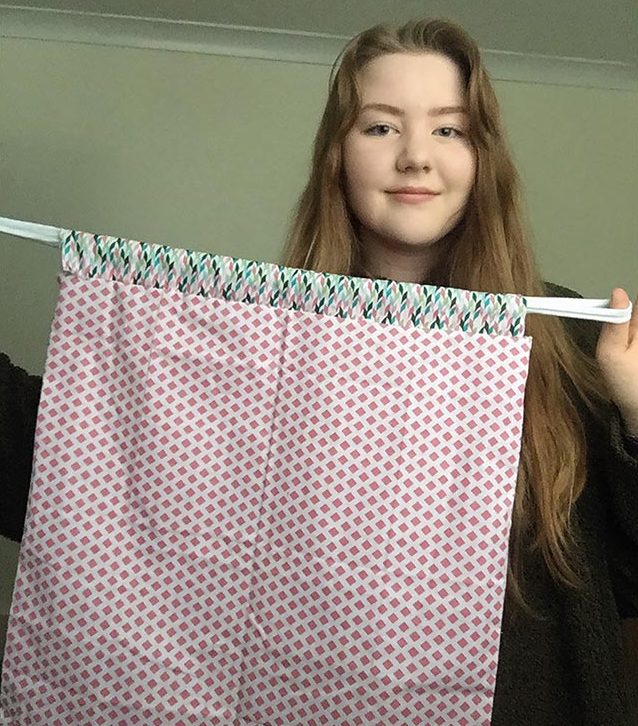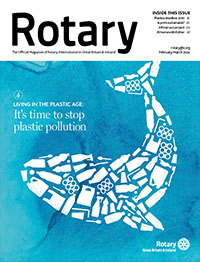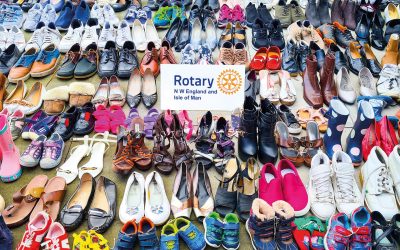One of the aims of the group this year was a commitment to protecting the environment.
Its initial focus was raising awareness with posts on the group’s social media account, but they wanted action not words.
Covid was restricting, however the group focused on what they could do rather than what they could not.
Recognising that an estimated 350,000 tonnes of used clothing goes to landfill in the UK every year, and with many people at home due to lockdown, the Interactors asked family and friends to have a spring clean sort-out.
As a result, the unused or discarded items were put to good use.
To reduce footwear waste and its impact on the environment, QE Interact collected and donated over 150 pairs of shoes to charities supporting the homeless.”
Mothers and babies in Africa were provided with baby starter kits thanks to a charity taking a container to Uganda.
A further 800 items of baby clothing were donated to baby banks in County Durham allowing parents who were struggling financially to give their loved ones the best start.
Over four million people nationally are wearing footwear which is neither suitable nor fit for purpose.
At least 2,500 homeless people have no shoes, or shoes which are falling to pieces. To reduce footwear waste and its impact on the environment, QE Interact collected and donated over 150 pairs of shoes to charities supporting the homeless.
The call from the NHS for scrub bags for key workers at Darlington Hospital was answered, made out of old material destined for the bin.


Queen Elizabeth Interact Club made scrub bags for key workers at Darlington Hospital.
Having worked with many care homes before lockdown, QE Interact knew how important interaction was.
They built and delivered bird boxes, plus hedgehog homes to a local care home, giving residents points of interest whilst unable to see visitors.
Other unwanted items collected were used to create reminiscence boxes – boxes containing items from the past to prompt discussions and raise smiles with care home residents.
ActionAid estimates that one in 10 girls in Africa will miss school when they have their periods, putting them at greater risk of child marriage, and getting pregnant at a younger age.
Conventional sanitary pads contain a high percentage of plastic, up to 90%. QE Interact put together 40 reusable sanitary packs for girls in Uganda, allowing them to attend school.
"Is it true that some girls can't go to school?"
Today is International #EducationDay, but millions of girls will never enter a classroom and 132 million are currently out of school.
Help us ensure all girls can access education: https://t.co/kYFj6QlLAY@davemorrissey64 pic.twitter.com/fZUuEkZbTE
— ActionAid UK (@ActionAidUK) January 24, 2021
Each kit lasts a girl three years, buying back over 180 days of education with dignity whilst limiting the impact on the environment, periods without plastic.
We buy 10 items when our grandmother bought two. We often think buying new things make us happy.
Maybe it’s time to reconsider the foundations of our lifestyles. Buy less, choose well, make it last.
Follow QE Interact Club on Twitter, @QEInteractClub



























































